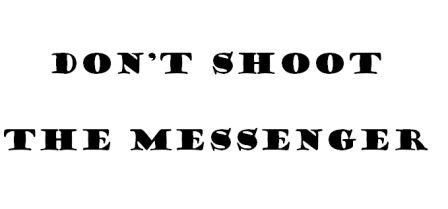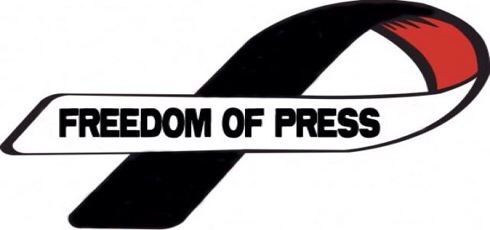Dr. Sylvia O Blyden is Right; Don’t Shoot the Messenger about the 1965 Public Order Act
I have always subscribed to the notion that “A free press is not a privilege, but an organic necessity in a great society.” In the recent past and in the run up to the presidential and parliamentary elections in this country, the people of Sierra Leone were treated to the unenviable pleasure of seeing the worst of journalism. During the elections, deceit from politicians and journalists alike was universal, and telling the truth was seen as a revolutionary act. I have always emphasised that among other things, the main tenets of journalism is to inform, entertain and educate.
There have been a lot of rumblings in the past about this Public Order Act; but more recently accusations have been made against those who support its full implementation. Sylvia Blyden has been accused in some quarters as the chief rabbi of the act. Some have even gone as far as insinuating that since she has access to the highest office, she is trying to leverage some presidential muscle in the process. One even compared her on Facebook, to a frog that likes water, but not when it is hot. But the act itself is nothing new, as it has been there since 1965.
I must confess that not only am I allergic to legal stuff, but I am also bankrupt in that area. Therefore, this is no attempt to pretend otherwise, but the 1965 Public Order Act is simply about upholding law and order. It sounds simplistic to say that any society needs “order” and in order for it to be maintained, there should be laws to uphold and enforce it. This act encompasses issues like public insult and provocation, insulting conduct, intimidation or annoyance by violence, idle and disorderly persons, drunkenness, affray, trespass, carrying of offensive weapons, riotous behaviour, etc. It is difficult to outline all that entails in this act, but the law equally promotes peaceful picketing and the prevention of intimidation; the right to assemble or associate.
It is no secret that the level of lawless is fast becoming the local currency in this country. It may sound too presumptuous to conclude that the clamour for this act may be borne of the realisation that our moral fabric is slowly disintegrating. To all intents and purposes, the act is nothing new but it is the Part V of the act, which deals with “defamatory and seditious libel” that seems to get some people’s knickers in a twist. In brief, it states that “any person who maliciously publishes any defamatory matter knowing the same to be false shall be guilty of an offence called libel and liable”. On conviction, the penalty is “imprisonment for a term not exceeding three years or a fine not exceeding one thousand Leones or both” Yes I know that it’s been a long time ago, for one grand to mean anything.
But why are some people, especially some journalists up in arms about this act? Look no further than read through the endless reams of thrash that we were subjected to, during the elections. Headlines were created on the whim of the sponsor. Personality attacks were the order of the day as yellow journalism took a foothold in the DNA of the country’s politics. Gutter journalism festered within the fourth estate, as the noble art was reduced to organised gossip.
As the elections reached fever pitch, it was an open season as decorum, morality, insults, accusations and malicious lies were peddled at the going rate of those that called the tune. We saw how every ounce of morality was traded by “warring” journalists from opposing political camps; all in the misguided notion of free speech and freedom of the press. But freedom of the press is guaranteed only to those who own one; because the only difference between suicide and martyrdom is press coverage
Indulge me for my naivety, but by implication, the material has to be published and the content has to be malicious for a crime to qualify as libel, In addition, the writer, editor, reporter etc must have known that it is false and malicious. The fact is that journalists should use the “truth” as the palm oil with which their words are eaten. We know that the truth is incontrovertible. Malice may attack it, ignorance may deride it, but in the end, there it is. An error does not become truth by reason of multiplied propagation. We know that journalists like to trade in pain, but “Journalists should always remember that “if you are out to describe the truth, you should leave elegance to the tailor (Einstein). What Part V of the act is basically promoting is the truth; and by so doing protecting the public from deceit and upholding rights of the individual. “The public have an insatiable curiosity to know everything; except what is worth knowing. Journalism, conscious of this, and having tradesman-like habits, supplies their demands.” Part V of the Act is therefore geared towards keeping journalism sanitised; for the good of all.
There is no doubt that some people may want to use the act for undue advantage to muzzle those they consider “undesirable”; but that should be a matter for the courts. No one wants to see journalists dragged to courts. There is an alienable right to freedom of speech and of the press. In Sierra Leone today, “Human Rights” is now the buzz word. But we should also remember that every ounce of “right” carries a tonne of “responsibility” .Under the present regime, and without sounding griot- like, press freedom has never been better; many would testify that some of the issues tackled these days would have earned anybody a decent night’s accommodation at Pademba Road Prisons; at no expense. It is therefore hypocritical to demand the right to free speech and a free press, without the responsibilities that come with it. By opposing the Act, we are unconsciously subscribing to the notion that there are laws to protect the freedom of the press’s speech, but none that are worth anything to protect the people from the press. The liberty of the Press is called the Palladium of Freedom, which means, in these days, the liberty of being deceived, swindled, and humbugged by the Press and paying hugely for the deception.
(- The Twainian,)
But you can’t have it both ways; to eat your cake and have it back. One would expect that with such laws enshrined in our constitution, the press should be capable of self regulation; which is sometimes mistaken for SLAJ. Therefore, blaming Sylvia for clamouring for the act reminds one of “scapegoatising”. But a little bird once said, “A long life in journalism convinced me many presidents ago that there should be a large air space between a journalist and the head of a state.” In journalism, there is always the temptation to stage, anticipate, report, and analyse the news until all interest is wrung from it and abandoned for some new novelty (Littleman). Its attitude, which it has preached and practiced, is scepticism. Now, it finds, the public is applying that scepticism to the press, some people are not happy. What the Act will do is to help stop “Journalism from constructing momentarily arrested equilibriums that will give disorder an implied order. That is already two steps from reality.” ”Not many people are comfortable with that.
Don’t forget to turn the lights out before you leave the room.
Stay with Sierra Express Media, for your trusted place in news!
© 2013, https:. All rights reserved.






